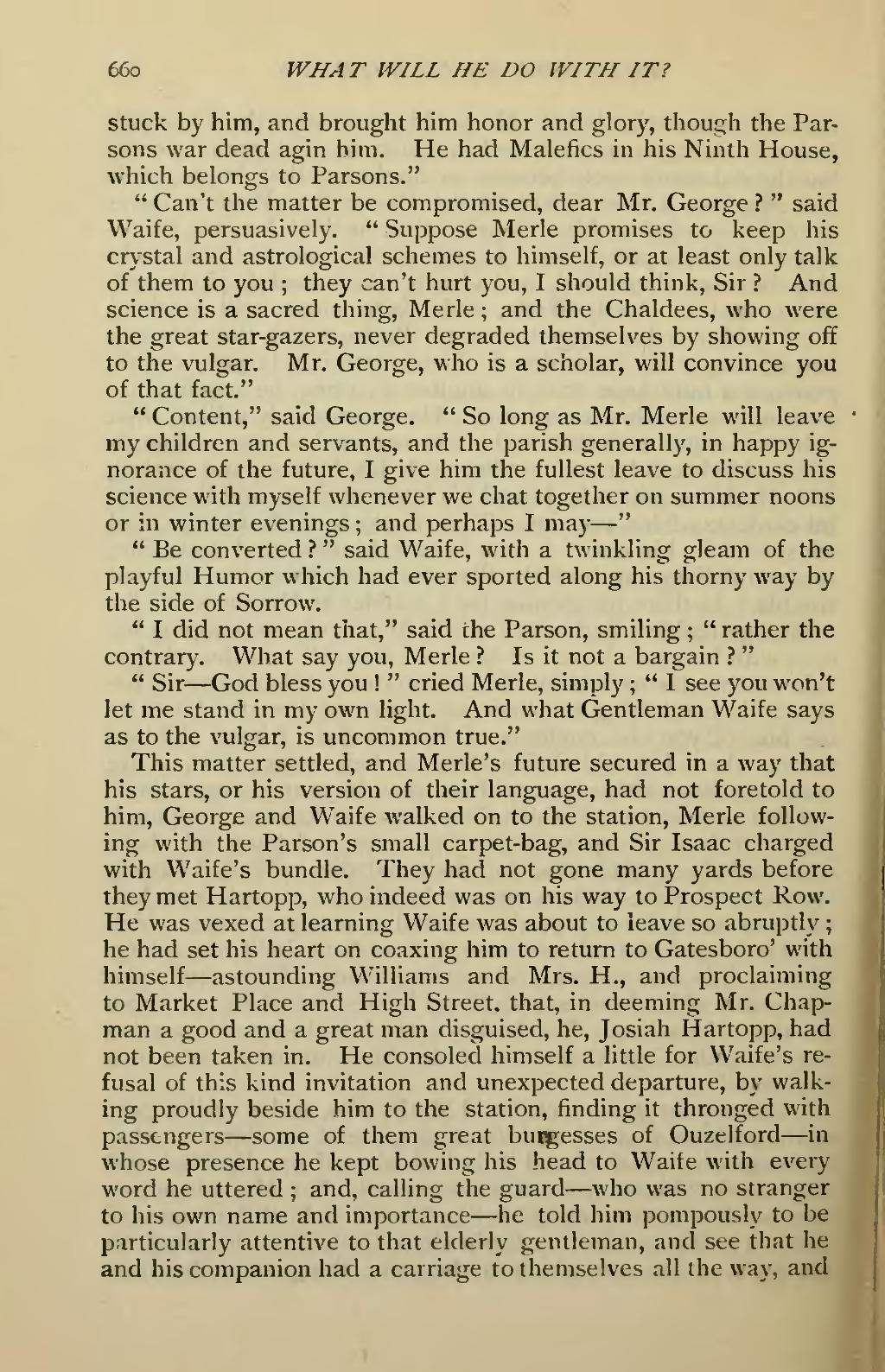stuck by him, and brought him honor and glory, though the Parsons war dead agin him. He had Malefics in his Ninth House, which belongs to Parsons."
"Can't the matter be compromised, dear Mr. George?" said Waife, persuasively. "Suppose Merle promises to keep his crystal and astrological schemes to himself, or at least only talk of them to you; they can't hurt you, I should think, Sir? And science is a sacred thing, Merle; and the Chaldees, who were the great star-gazers, never degraded themselves by showing off to the vulgar. Mr. George, who is a scholar, will convince you of that fact."
"Content," said George. "So long as Mr. Merle will leave my children and servants, and the parish generally, in happy ignorance of the future, I give him the fullest leave to discuss his science with myself whenever we chat together on summer noons or in winter evenings; and perhaps I may—"
"Be converted?" said Waife, with a twinkling gleam of the playful Humor which had ever sported along his thorny way by the side of Sorrow.
"I did not mean that," said the Parson, smiling; "rather the contrary. What say you, Merle? Is it not a bargain?"
"Sir—God bless you!" cried Merle, simply; "I see you won't let me stand in my own light. And what Gentleman Waife says as to the vulgar, is uncommon true."
This matter settled, and Merle's future secured in a way that his stars, or his version of their language, had not foretold to him, George and Waife walked on to the station, Merle following with the Parson's small carpet-bag, and Sir Isaac charged with Waife's bundle. They had not gone many yards before they met Hartopp, who indeed was on his way to Prospect Row. He was vexed at learning Waife was about to leave so abruptly; he had set his heart on coaxing him to return to Gatesboro' with himself—astounding Williams and Mrs. H., and proclaiming to Market Place and High Street, that, in deeming Mr. Chapman a good and a great man disguised, he, Josiah Hartopp, had not been taken in. He consoled himself a little for Waife's refusal of this kind invitation and unexpected departure, by walking proudly beside him to the station, finding it thronged with passengers—some of them great burgesses of Ouzelford—in whose presence he kept bowing his head to Waife with every word he uttered; and, calling the guard—who was no stranger to his own name and importance—he told him pompously to be particularly attentive to that elderly gentleman, and see that he and his companion had a carriage to themselves all the way, and
